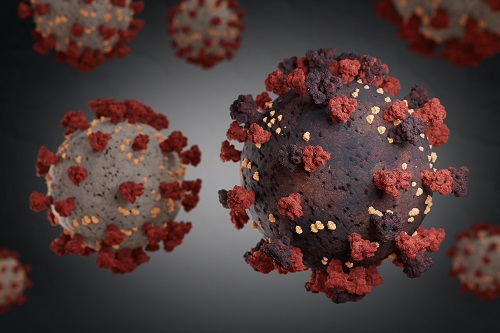Since the beginning of the SARS-CoV-2/COVID-19 pandemic, scientists and public health officials have been monitoring for genetic changes or virus variants that could impart new characteristics and epidemiological behavior of the virus.
While some variants were detected during the first six to eight months of the pandemic, it was not until late 2020 when changes were identified that resulted in significant, material differences in the transmission rates and possible lethality of the virus. The key question now: What is the potential impact of these variants on the efficacy of vaccines already approved or in development?
Background on the variants
New virus variants have one or more genetic mutations which differentiate them from what are called the circulating or predominant wild-type viruses. Not unexpectedly, several variants have arisen during the course of the pandemic; however, the key is whether or not the changes materially affect the clinical and epidemiological characteristics of the virus. Of particular concern are variants which allow the virus to spread more easily, cause more severe disease, or partially or completely elude the body’s immune response. The variants can have multiple mutations, including some in their spike S glycoproteins, which are key targets of virus neutralizing antibody elicited by vaccines.
Variants of Concern (VOC)
B.1.1.7: The first variant of concern, initially identified in the U.K. near the end of 2020, has now been reported in more than 70 countries around the world. It is believed to be approximately 50% more transmissible than the wild-type virus, perhaps due to the N501Y mutation it contains.
B.1.351: Originating in South Africa, this variant shares some mutations with B.1.1.7 including N501Y. There are specific concerns regarding this variant possibly being more resistant to vaccine-induced neutralizing antibodies due to the E484K mutation.
P.1: First identified in Brazil in January 2021, it has 17 unique mutations, including three in the receptor binding domain of the spike protein. P.1 also contains the E484K and N501Y mutations.
What is the impact of the new variants on current vaccine efficacy?
The primary concern is that given the changes the variants display in their spike proteins, previously developed vaccines eliciting neutralizing antibodies may not recognize or bind as well or efficiently to the target locations on the spike protein, potentially reducing the preventative effect of vaccines. There is now emerging data for review, much of it relatively favorable, although primarily from the vaccine manufacturers themselves.
One of the first studies to examine the potential impact of the variants was posted online on January 7, 2021. In particular, while it did not look at the full set of spike mutations found in the rapidly spreading strains in the U.K. or South Africa, it did find preserved neutralization of the virus bearing the Y501 spike by the serum of 20 previously immunized individuals with the Pfizer vaccine.
Moderna published a report on January 25, 2021 indicating that in vitro neutralization studies of serum from people vaccinated with their vaccine showed activity against emerging strains of SARS-CoV-2. Specifically, there was no impact on the neutralizing titers against the B.1.1.7 variant, but there was a six-fold reduction in the titers against B.1.351. Nonetheless, the titers against B.1.351 were still above levels expected to be protective.
Novavax announced trial results on January 28, 2021, stating that the vaccine demonstrated not only high clinical efficacy against COVID-19, but also significant clinical efficacy against both the rapidly emerging U.K. and South Africa variants.
On January 29, 2021 Johnson & Johnson presented outcomes of their clinical vaccine trials, reporting protection against severe disease across geographies, ages, and multiple virus variants, including B.1.351 observed in South Africa. There was complete prevention of COVID-19 hospitalization and death in all vaccine recipients.
Most recently on February 4, 2021, a publication was released assessing the efficacy of the AstraZeneca vaccine against the U.K. variant. It showed that efficacy of the vaccine against the variant is similar to the efficacy of the vaccine against other lineages. Furthermore, the vaccine results in a reduction in the duration of shedding and viral load, which may translate into a material impact on transmission of disease. Of greater concern was the even more recent announcement that the AstraZeneca vaccine offered only limited protection against mild and moderate disease caused by the South Africa variant, but the efficacy against severe disease, hospitalizations, and deaths was not yet determined.
Future Outlook
Moving forward, it is fully expected and anticipated that additional, new SARS-CoV-2 virus variants will emerge. Already, there is evidence of subsets of the U.K. variant now harboring the E484K mutation that presented originally in the South Africa variant and is also present in the Brazilian variant. There is also some speculation that as more people become immunized it could put pressure on the virus to mutate further. Therefore, surveillance will be critical to ensure the virus does not escape immunity in the future. Notably, some vaccines, especially those from Pfizer, Moderna, and AstraZeneca, can be redesigned in a relatively straightforward manner to better target new variants, if needed. Additionally, another manufacturer recently announced a project to develop a COVID-19 vaccine next year that could target several variants in one shot.
Insurance Implications
Insurers modelling mortality and morbidity outcomes will need to take the emergence of new SARS-CoV-2 variants into account. Close monitoring of the efficacy of the currently approved and forthcoming vaccines against the variants should continue. As more is learned, underwriting approaches to new business will necessarily evolve and be driven by a balanced and thorough review of cautionary and supportive data.
Conclusion
The SARS-CoV-2/COVID-19 pandemic continues to provide evolving and new challenges. While not unanticipated, the recent emergence of several variants has provided an extraordinary twist to the trajectory of the pandemic and has raised questions regarding the impact on future case counts, treatment outcomes, mortality and morbidity experience, and vaccine efficacy.
Preliminary data would indicate that vaccine efficacy will vary to some extent with the new variants, but hopefully the overall successful impact on prevention of serious outcomes, including hospitalization and death, will be maintained. Additionally, the ability of certain manufacturers to modify their vaccines to target future variants is reassuring.



